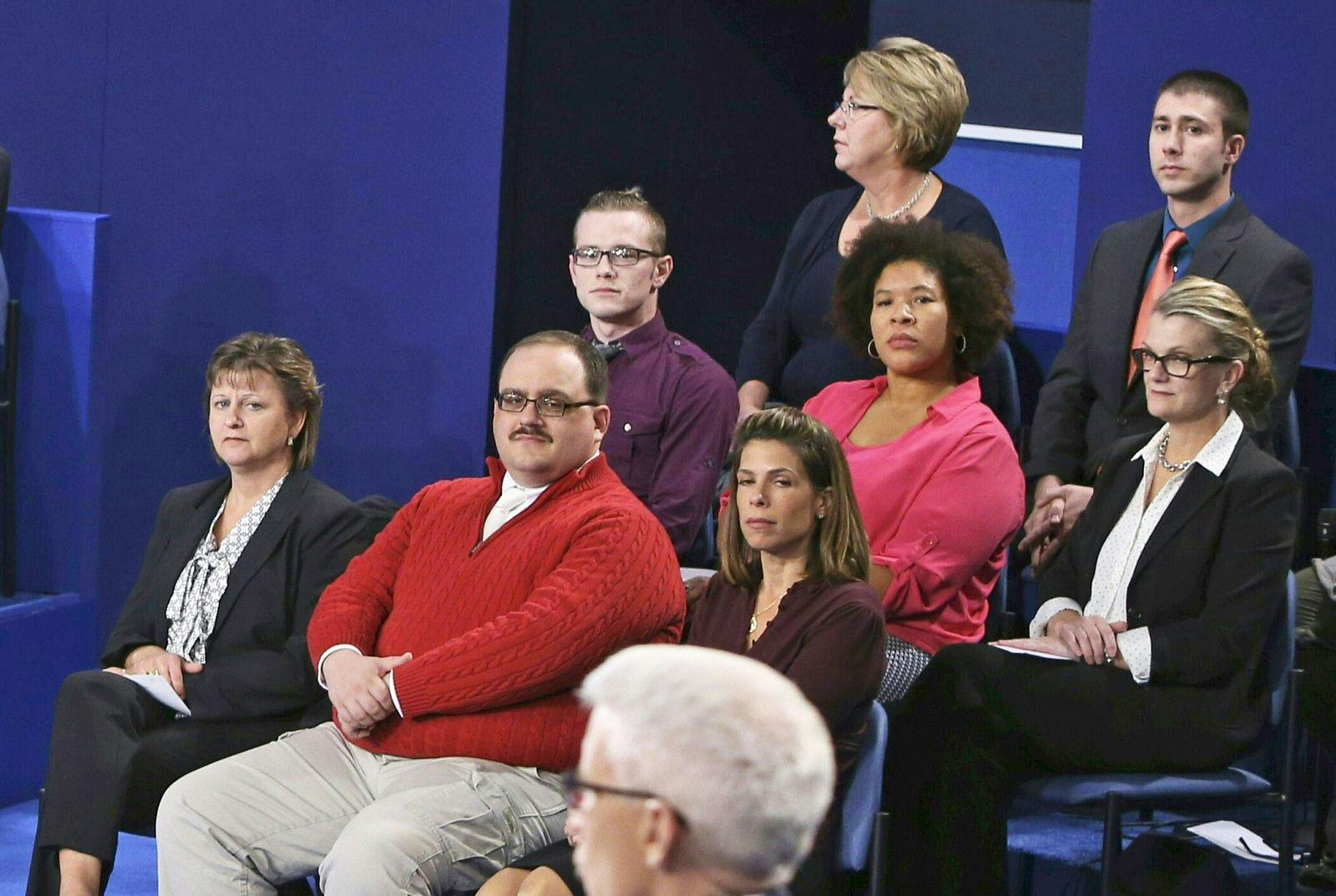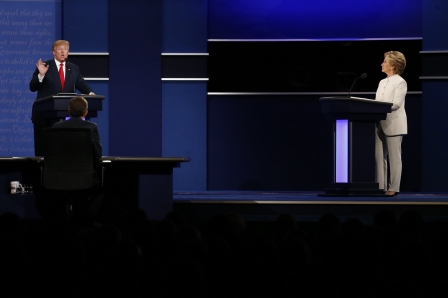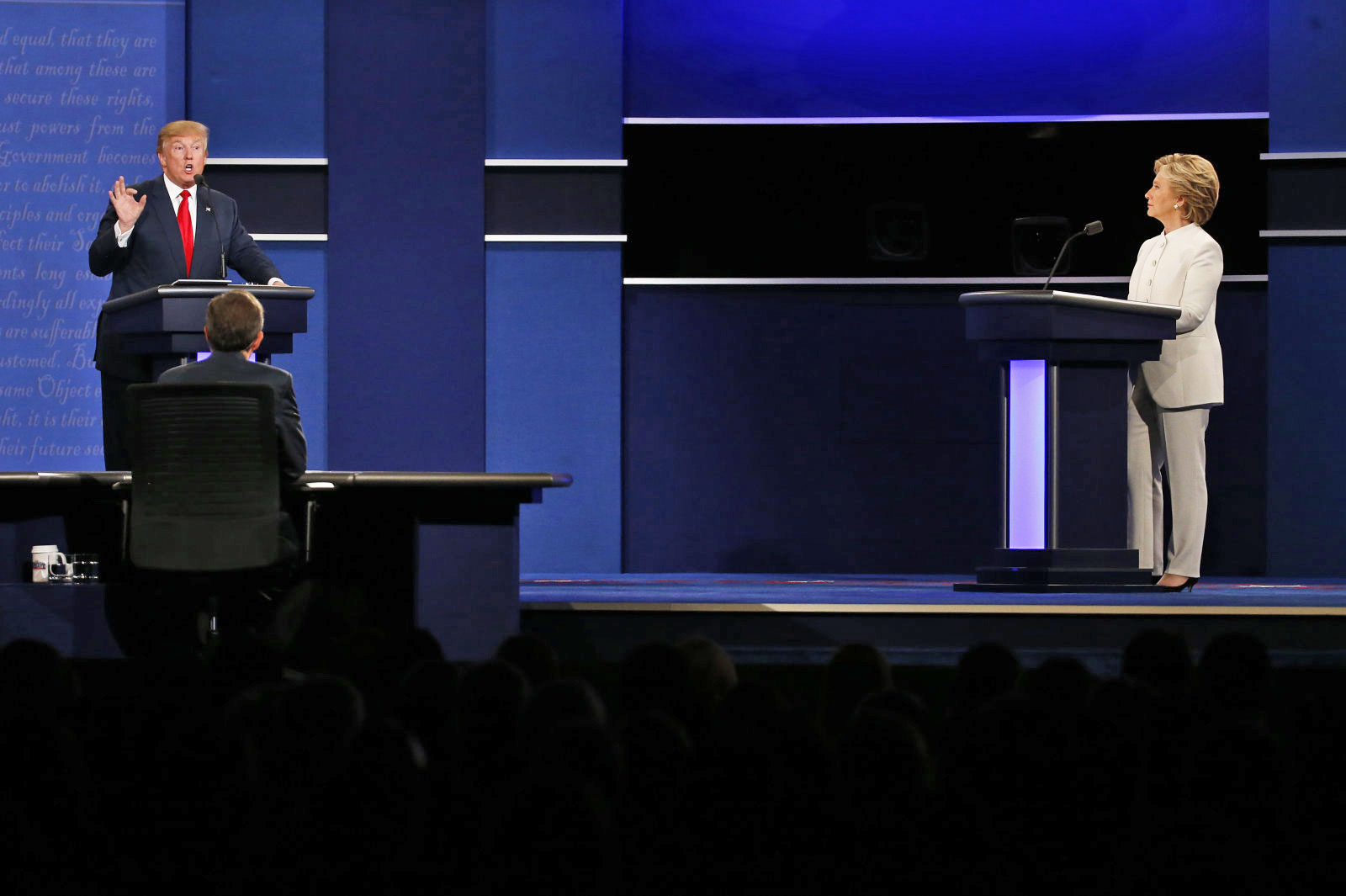Climate change took a backseat to scandal at the presidential debates
While the third and final debate between Donald Trump and Hillary Clinton covered national debt, gun control — and whether or not to accept the results come election day — climate change barely got a look in. In fact, environment was hardly on the radar across the span of all three debates. As we summarized in our election guide, the majority of scientists are convinced that human activity is responsible for rising levels of CO2 and mean temperature increases. This will have powerful effects on crops, sea levels and weather patterns — and our lives. Political policy, when it comes to climate change, is very important.
Trump has previously said he’s “not a believer in man-made global warming. I believe there’s weather. I believe there’s change.” He’s added that there are bigger problems to tackle, like global famine and disease. Trump’s energy policy, at least so far, isn’t focused at dealing with the issue of climate change, but more on trade and business connected to energy policy. Clinton said she believed “climate change is a challenge of such magnitude and urgency that we need a president who will set ambitious goals.” She wants to make America the “21st century clean energy superpower.” (The Democrat candidate mentioned the topic in passing during today’s debate.)
Despite both candidates having strong opinions on the issue, it didn’t show. Across all three televised discussions, the most we’ve heard about climate change and energy policy was due to an audience question from a certain red-sweatered individual.

Ken Bone, a coal plant operator from Illinois, asked how each candidate’s energy policy will tackle the country’s energy needs, while balancing environmental impact and and minimizing job losses. (Let’s note that most viewers found the undecided voter far more fascinating than his question.)
In his answer, the Republican candidate accused the Environmental Protection Agency of “killing these energy companies,” adding that the country needed “much more than wind and solar.” Clinton reiterated that the US was energy-independent for the first time ever — something she wants to maintain, if elected. Her government would move “toward more clean, renewable energy as quickly as we can.”
Then again, perhaps the candidates are just addressing what polls also show: the environment is generally a low priority for American voters. The Pew Research Center’s poll from June puts it as low as 12th, out of 14 topics. Despite such low ranking, voter opinion is severely divided on the issue.
According to a survey from the Energy Policy Institute, 42 percent of Americans wouldn’t pay an extra $1 per month to reduce greenhouse gas emissions. At the same time, 20 percent they’d add an extra 50 bucks. ($50 per month is the government’s estimated cost of damages from climate change would be on each household in the country.) These opinions attach quite strongly to democrat party lines: 84 percent of Democrats thought that the government should do something about climate change, while only 43 percent of Republicans thought the same.
When it comes to policy, Trump says he will “save the coal industry.”
When it comes to policy, Trump says he will “save the coal industry” and make land in the Outer Continental Shelf available for oil drilling and natural gas — aiming to increase fossil fuel stocks rather than reduce use. His ideas goes further, undoing previous environmental policy. If elected, Trump plans to rescind the Climate Action Plan and the Paris Climate Agreement (to limit global warming to two degrees Celsius), and stopping all payments of US tax dollars to the UN’s global warming programs.
Clinton’s plans are grand and possibly optimistic. She wants to generate half of the country’s electricity from clean sources, hoping to install half a billion solar panels by the end of her first term. These are huge aims. She also wants to reduce the country’s oil consumption through cleaner fuel alternatives and more efficient transport technology.
Clinton wants to generate half of the country’s electricity from clean sources.
Instead of hearing more on these promises, a large proportion of the final debate consisted of both candidates attacking (and defending themselves) against their failures and controversies. Trump called the sexual assault accusations against him false, while Clinton had to defend against her use of a private email server while Secretary of State.
Voters, divided on climate change, have two very different candidates to choose from.
(35)















